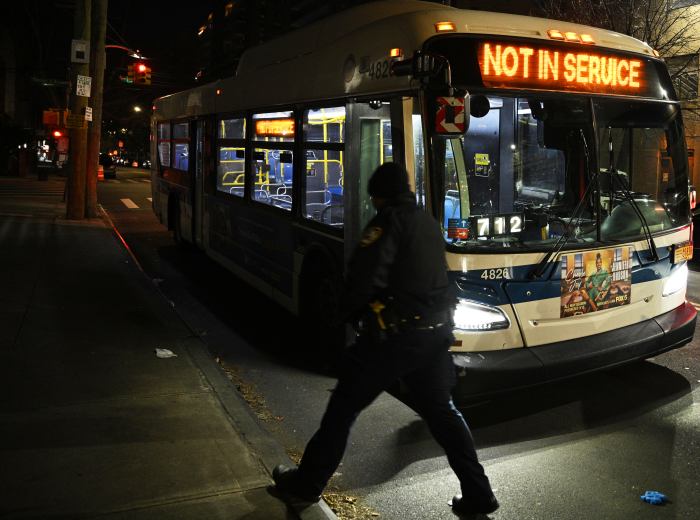By Peter Sorkin
Calling abuse of the elderly a “scourge” that should be eliminated everywhere, U.S. Rep. Joseph Crowley (D-Elmhurst) assured a group of seniors this week that he is working to improve the lives of elderly people living in nursing homes.
“Patient protection should be a right,” Crowley said Monday morning during a senior town hall meeting at Jacob A. Riis Senior Center in Long Island City in which he discussed the Elderly Protection Act he introduced to Congress last year.
The bill was referred to several committees before being tied up last year. With four weeks left in the 2000 legislative session, Crowley hopes that his renewed push will help the bill become law, his spokesman said.
During his presentation, Crowley praised the White House and the Clinton administration for their efforts on behalf of the rights of the elderly. According to a report released last week by the White House, 54 percent of all nursing homes across the country do not meet federal standards.
“We're working both locally and nationally,” Crowley said. “We need to eliminate the scourge of elder abuse.”
Queens has the largest senior population in New York City.
The meeting at the senior center in Long Island City's Queensbridge Houses also featured senior protection advocate the Rev. Coleman Costello, founder of Walk the Walk, a non-profit organization whose goal is to provide emergency shelter to elderly people who have suffered abuse. He said it was imperative to address the problem now because people have come forward only recently to report this crime, even though it has existed for decades.
“For too long elder abuse has been ignored or reported as domestic violence,” he said. “Elder abuse is no more domestic violence than child abuse.”
According to Costello, there were 100,000 cases of elder abuse reported in 1999. “In 10, 15 years, there will be a 75 percent increase of seniors in New York – about 1.3 million seniors,” he said.
“Senior citizens and their families should not have to worry about the quality of care they receive when they enter a nursing home or hospice care,” Crowley said in a news release. “We must work on all levels to ensure the safety and well-being of senior citizens in care facilities.”
Crowley defined elder abuse as the exploitation of elderly residents who cannot take care of themselves. This may consist of financial abuse where elderly people are often robbed of their belongings, or cases when they are even denied food as punishment by their caregivers.
As a result, the Elderly Protection Act would make elder abuse a federal crime and would expand access to domestic violence shelters and programs for older individuals, he said. The bill would also provide grants to support community projects concerning intervention and prevention of elder abuse, as well as outreach programs to inform citizens of their rights.
Costello, who said elder abuse is often the result of health care workers who are underpaid and inadequately trained, said the last two provisions of the bill are most important to him.
The bill will also guarantee that future health care providers and caregivers can identify, examine and treat victims of elder abuse and would require background checks for direct care employees in nursing home facilities, home health agencies and hospice programs.
Seniors Beatrice Hazzell, deputy secretary of the Jacob A. Riis Senior Center, and Theresa Jones, the corresponding secretary, have both lived in the Queensbridge Houses for about 45 years. Although neither said they had experienced elder abuse themselves, they had heard stories from their friends and said the bill was a good step in eliminating such cases.
“I know people who have had a problem and I think it's worth it,” Jones said.
Hazzell, a retired registered nurse who has worked closely with the health care industry, said “the center here has facilities to take care of the homebound so we don't have too much going on over here,” she said. “It's going to take a little time, but as the pastor said, they should have done it a while ago. I support it.”
Crowley said the passage of the bill was important to him because many of his constituents are elderly.
“This district – my district – has the third highest concentration of seniors in New York and the number of my constituents is growing,” he said. “This is a real problem that should not be hidden away.”


































